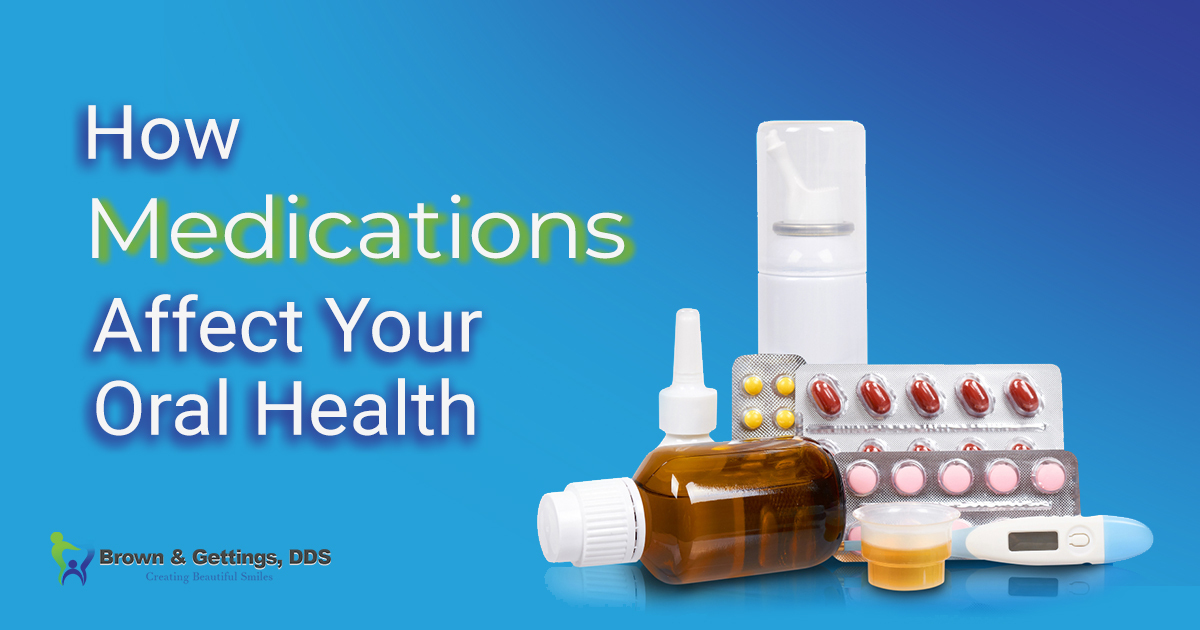
Medications And How They Affect Oral Health
At Brown & Gettings, DDS, we often discuss the link between your oral and overall health. We want to bring awareness to the fact that many medications, prescribed and over the counter alike, can have lasting effects on your teeth and mouth that can impact your oral health in the future. Below are the most common side effects as well as some tips to help your oral health:
Be Honest About Overall Health
When you visit our office for any reason, whether for a cleaning or for treatment, it is important to tell us about any changes to your medical history. This includes any recent medical diagnosis as well as any medications, prescription or over the counter. Medications and certain illnesses and conditions can change the way we need to care for our mouths. There are certain conditions that require medication before we can even perform a cleaning to prevent bacteria from causing a problem with your overall health.
Dry Mouth
You might be surprised at the number of prescription and over-the-counter medicines that can cause dry mouth. Dry mouth happens when you don’t produce sufficient saliva, which your mouth needs to wash away food. It also helps prevent harmful decay from building up on teeth. Dry mouth can increase your chances of getting cavities and gum disease.
Abnormal Bleeding
Some medications can increase the risk of bleeding in the mouth. We do not want you to be alarmed, as bleeding gums can sometimes be an indication of problems with your oral health, such as gum disease. This can occur when brushing and flossing, as well as during cleanings and dental treatments. Because of this, there are some medications that will need to be stopped for a certain period before we can perform a necessary treatment.
The next time you are prescribed medication, remember to ask how it might affect your oral health. If your doctor or pharmacist can’t answer your questions, don’t hesitate to call our office, which is located in West Chester, OH. We are happy to help!

 Espanol
Espanol






